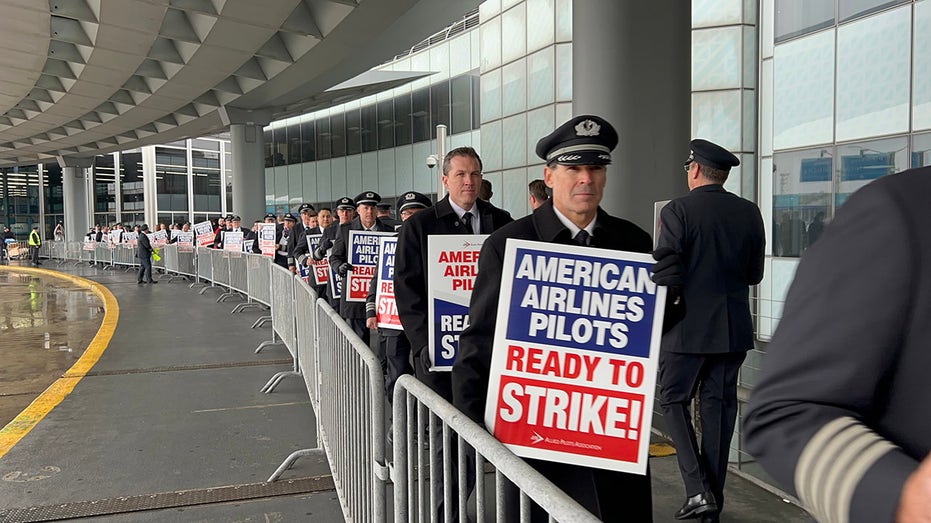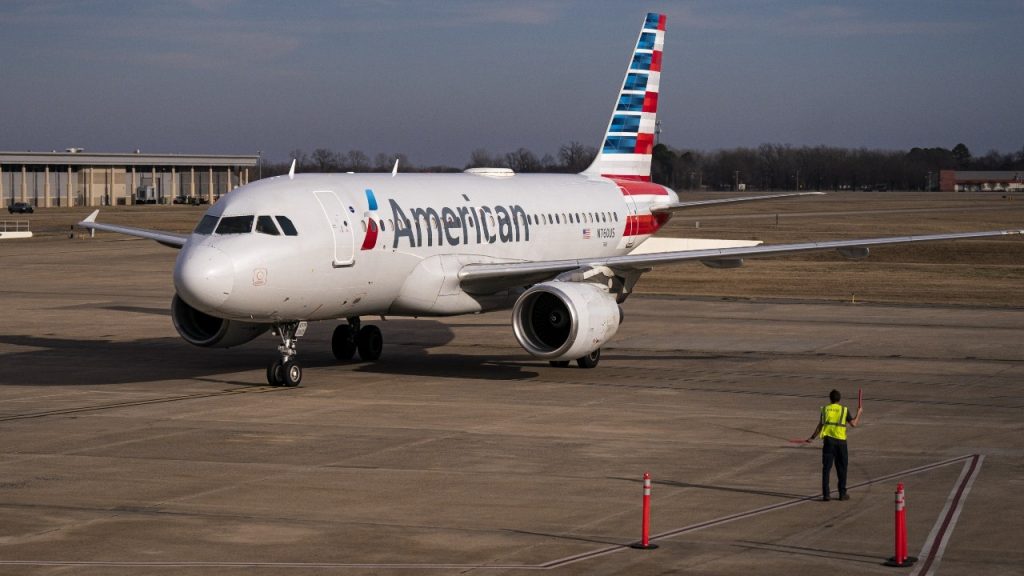American Airlines has announced that it increased the value of the contract offered to its pilots by more than $1 billion to match a deal made by rival United Airlines that threatened to unwind negotiations.
American announced Friday that the improved offer would increase the value of its four-year contract offer to $9 billion. The airline intends to match the pay rates and retroactive pay included in United Airlines’ tentative agreement that was reached on July 15. The deal also includes extended sick leave with a bank of 120 hours and four hours accrued per month and increased life insurance, which rises to $750,000 regardless of age.
Last week, the Allied Pilots Association – representing American Airlines pilots – warned that the ratification of American’s previous contract offer was in jeopardy after United Airlines’ announcement of a deal with its pilots union in mid-July.
UNITED AIRLINES PILOTS REACH ‘HISTORIC’ AGREEMENT IN PRINCIPLE, WITH BIG PAY RAISES, OTHER PERKS
Before American revised its offer to match its rival, United pilots were on track to make at least 2% more than their peers at American. United Airlines pilots will get pay raises that amount to a cumulative 34.5% to 40.2% over the course of the four-year agreement.
The revised offer by American Airlines to the pilots union includes a ratification bonus, an accelerated 401(k) increase, “medical freedom protections” and several other proposals.
| Ticker | Security | Last | Change | Change % |
|---|---|---|---|---|
| AAL | AMERICAN AIRLINES GROUP INC. | 17.42 | -0.02 | -0.11% |
| UAL | UNITED AIRLINES HOLDINGS INC. | 57.61 | +1.04 | +1.84% |
AMERICAN AIRLINES BOOSTS PROFIT OUTLOOK ON RECORD TRAVEL

Pilots are set to vote on the ratification of the proposed deal beginning on Monday, July 24. The vote is scheduled to close on Aug. 7 and will be supervised by the American Arbitration Association.
The negotiations between pilots and airlines come amid a travel season that has seen numerous weather-related disruptions that have been exacerbated in part by a shortage of pilots and air traffic controllers, as well as overscheduling by airlines looking to satisfy the rising demand for flights.
Earlier this year, the Federal Aviation Administration and airlines moved to reduce their flight schedules in the Northeast by about 10% to give airlines more flexibility when flights are delayed and canceled due to inclement weather. In early July, thunderstorms along the East Coast and in the Midwest disrupted tens of thousands of flights.
This summer’s Fourth of July holiday period broke travel records for the number of passengers moving through TSA checkpoints at airports.
Reuters contributed to this report.
Read the full article here














